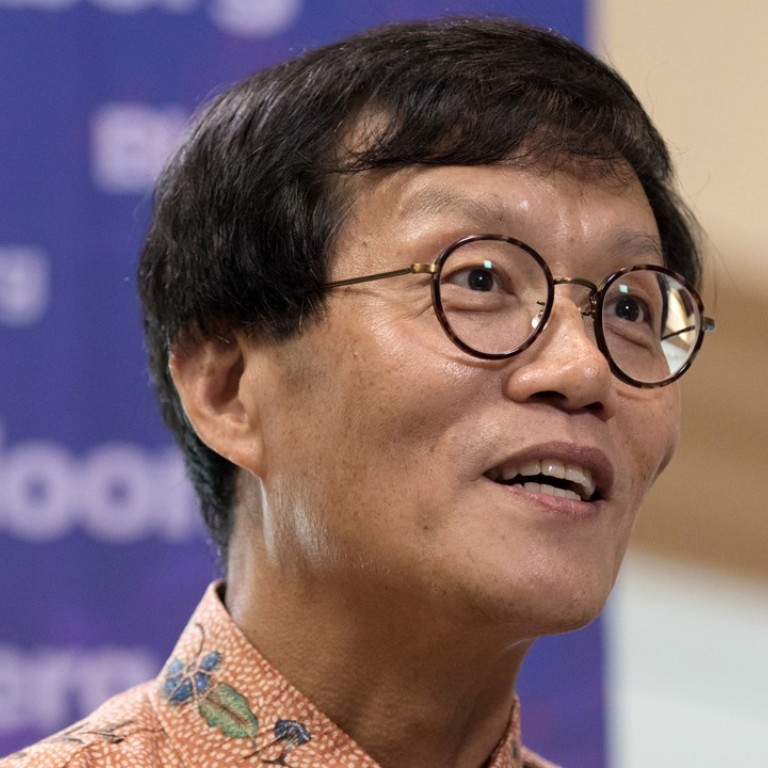
Attempt to isolate China from world trade system ‘will not work’, says IMF’s top Asia official
Changyong Rhee identifies three risks to region’s growth pace: continued escalation of trade tensions, an acceleration of monetary tightening by the US Federal Reserve, and a stronger-than-expected rise in oil prices
Attempts by the US to isolate China from much of the international trading system by concluding restrictive trade deals with its major trading partners would harm the global economy, the IMF’s top official in Asia has warned.
Changyong Rhee, head of its Asia and Pacific department, said on Friday that China is already integrated into the world economy, “and is basically too big,” for any such a plan to work.
“The US and China have to talk” to resolve their disagreements, he stressed in an exclusive interview with South China Morning Post during the IMF’s annual meetings in Bali, Indonesia, adding the current trade dispute could last “for a while”.
The administration of US President Donald Trump recently completed a new trade agreement with Canada and Mexico that requires each of the three nations to detail any trade negotiations with a “non-market economy” and allows the countries to withdraw from the deal if agreement is concluded – that is effectively a veto over any attempt by Canada and Mexico to reach trade agreements with China.
The US is expected to push for the inclusion of a similar provision in trade deals it is now negotiating with the European Union and Japan. Such a provision in those deals has raised concerns it would leave China at a major disadvantage in trade with much of the world economy.
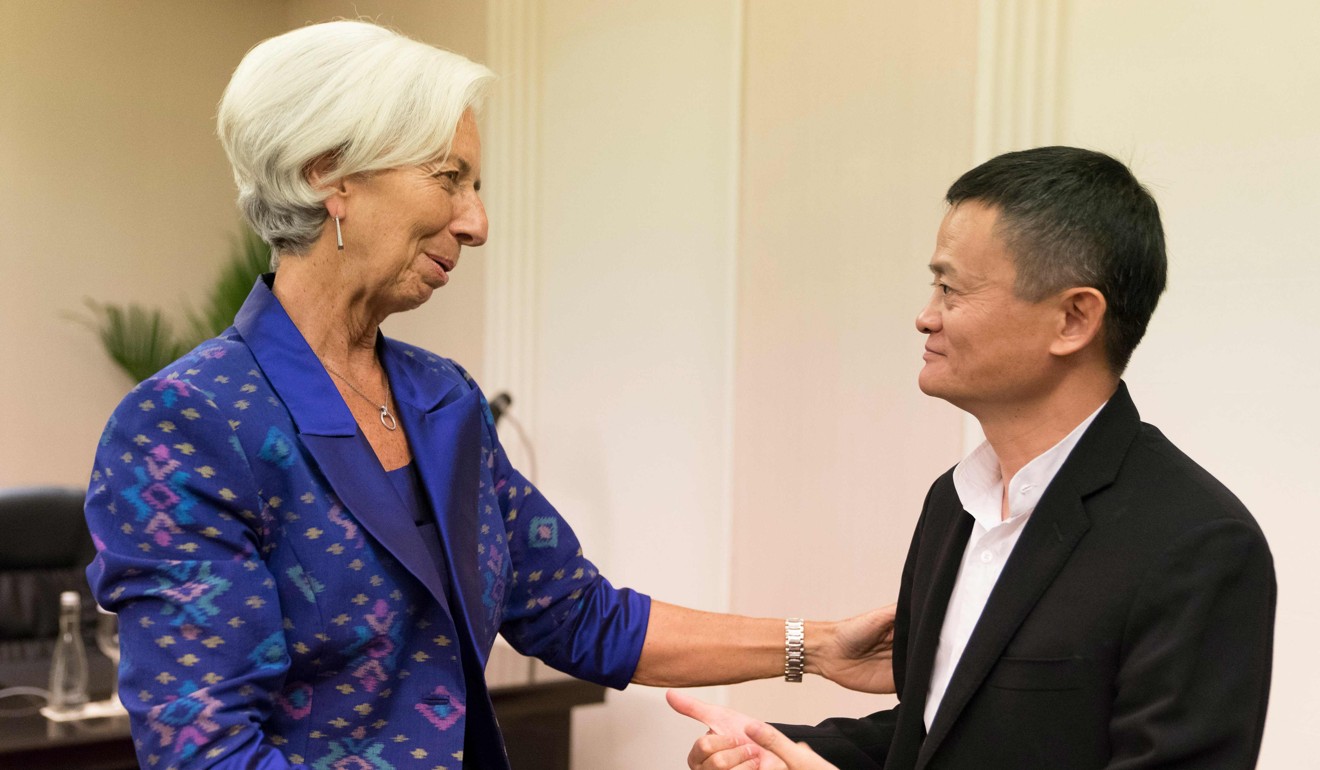
That situation should not be considered as a solution to the current trade dispute between China and the United States, stressed Rhee, who was chief economist at the Asian Development Bank before joining the IMF in February 2014.
There would be “no winners” from a further escalation of trade tensions into a full-blown trade war, he continued.
The worst-case scenario is both US tariffs on virtually all Chinese imports and US tariffs on automobile imports from a range of countries. This would cut the world economy by 0.9 per cent, the Chinese economy 1.6 per cent, and US economy by about 1 per cent.
[The WTO] never resolves cases like China, which is both developing and developed
While much of this decline could be offset by government stimulus, the full impact of the trade sanctions would have negative, long-term consequences for world growth, Rhee said.
And while some Southeast Asia economies may see short-term gains as their exports to the US substitute those of China, this positive impact would be overwhelmed by the negative effects of the trade war on business and consumer sentiment as well as the likely adverse reaction from global financial markets
“Don’t break it, fix it,” Rhee said of the existing global trading system. While recognising the US complaint that current world trading rules do not adequately address China’s state-sponsored economic model, he urged China and the US to work together with other nations to modify those rules and preserve the World Trade Organisation-based (WTO) trade framework.
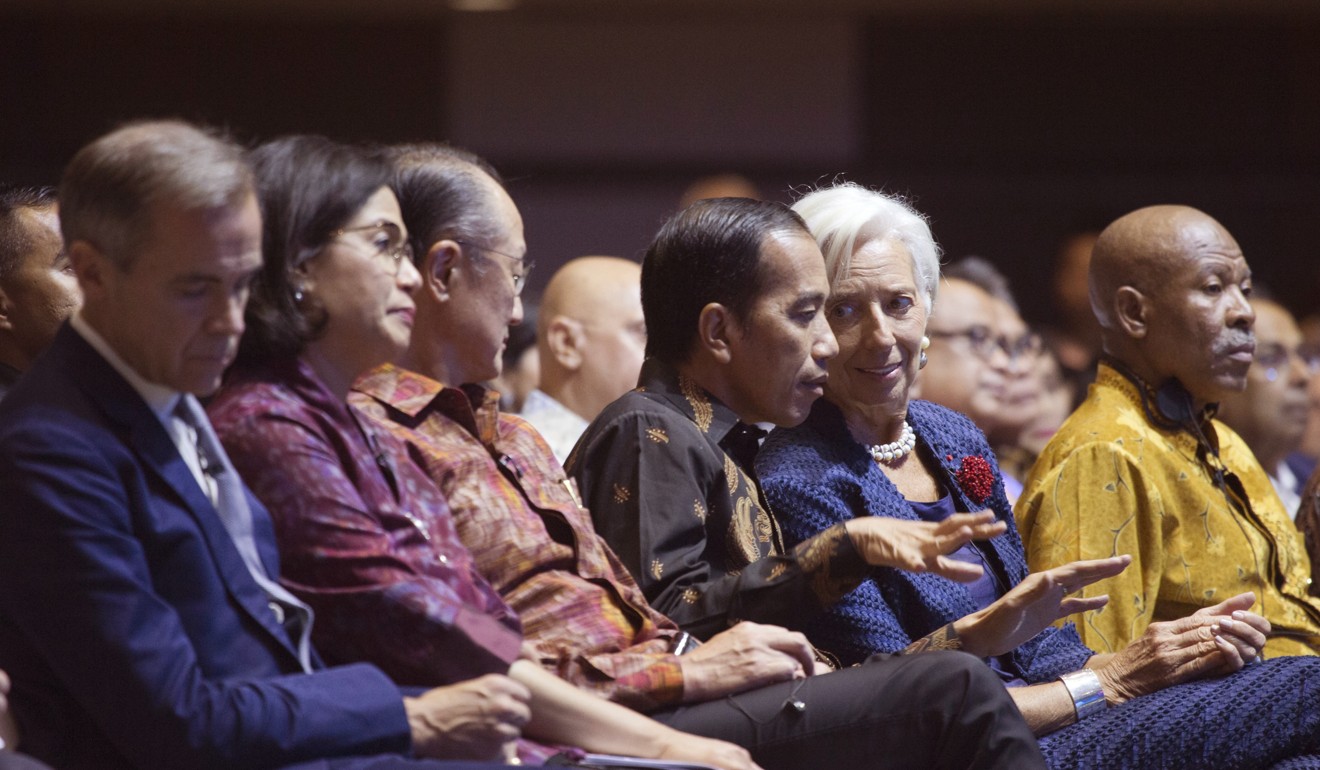
“China’s system is different. From the beginning, the WTO rules were not designed for China,” Rhee said. “And at the same time, the WTO has special clauses favouring developing countries. But it never resolves cases like China, which is both developing and developed.”
The fact that China’s economy is much more complicated than that of a homogeneous country may be part of the root cause for the current trade tensions, he added.
“Together the five coastal provinces in China form an economy bigger than the world’s fourth biggest economy, the UK. But there are also less developed regions [in China].”
Rhee said there was a lot the Chinese authorities could do to handle economic pressures from both external and internal sources.
To address the dissatisfaction by other economies, for instance, China should allow more foreign ownership of domestic businesses, give foreigners better incentives to invest in China, and strengthen its protection of intellectual property.
Internally the key to that is balancing growth and de-risking, he said.
“The biggest risk, to me, is how to handle leverage [debt],” he added, describing this as a “deeply rooted fiscal issue in China,” as local governments have been heavily dependant on lending to fund their operations.
“We believe China has the space and the ability to do it, but how to make a soft landing [for debt reduction] is key,” he said.
China’s campaign to slash debt, pushed by Beijing from late 2017, is half complete with its growth pace starting to plateau, he said.
Since June, the country has introduced policy-easing measures, injecting more liquidity and boosting fiscal expenditures to stabilise growth in response to its rising trade tensions with the US, triggering renewed criticism that China feeding growth by building up debt.
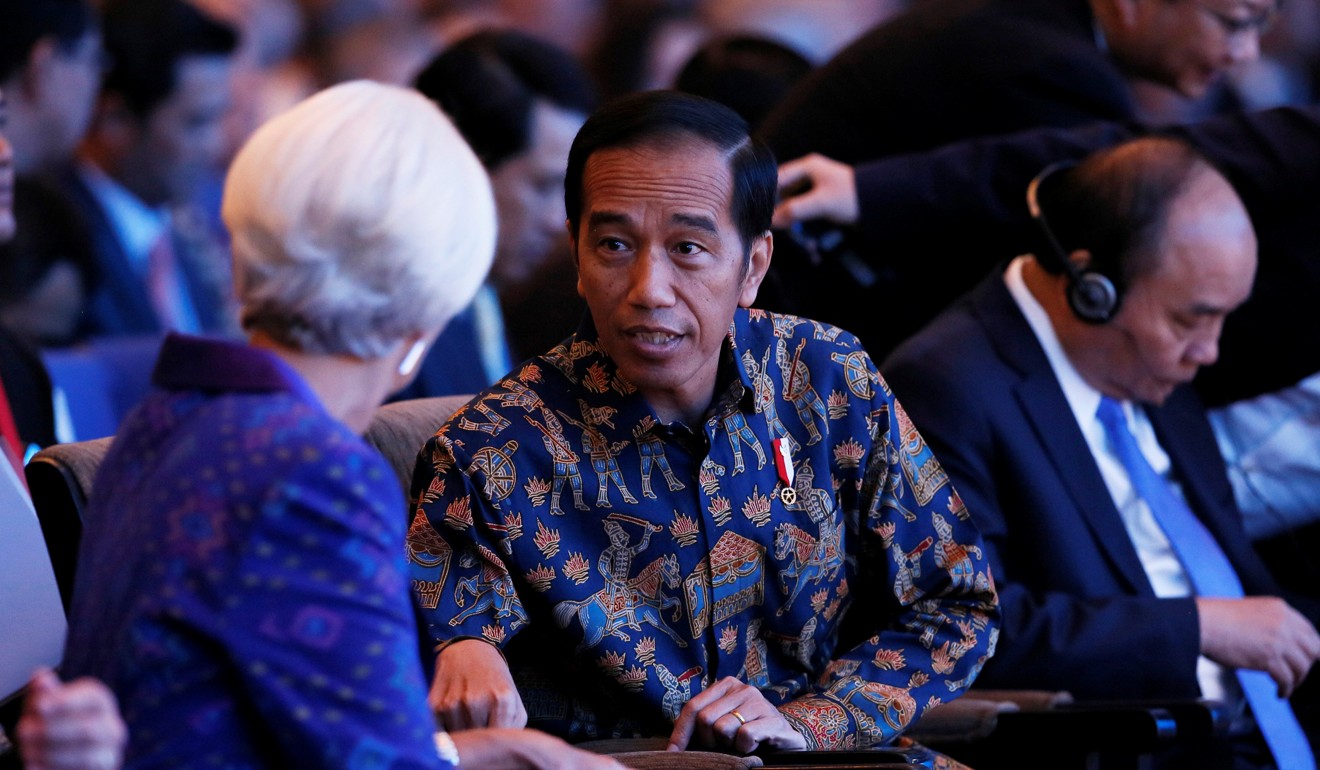
Every country has the right to use counter-cyclical measures to offset pressure on its growth, Rhee said.
“But China has to maintain a delicate balance between financial stability and mediating growth pressure,” he said.
It is also important China does not promote excessive investment, but rather focuses more on social transfers which would increase consumption and help rebalance the economy, he said.
The other major risk facing China is whether it will be able to offset the pressure brought by its rapidly ageing society by creating high-quality jobs and improving the social safety net, he said.
[China’s] focus now should be on the quality of growth, improving the social safety net and addressing [income] inequalities
“China did a great job in moving from a low-income to a middle-to-high income country. The focus now should be on the quality of growth, improving the social safety net and addressing [income] inequalities,” he said.
More broadly, while the Asia-Pacific region remains the powerhouse of global economic growth, Rhee identified three risks that threatened the region’s growth pace: the continued escalation of trade tensions, an acceleration of monetary tightening by the US Federal Reserve, and a stronger-than-expected rise in oil prices.
“What I am worried about is a combination of the three [risks]” materialising at the same time,” he said.
A further escalation of the trade war is possible, given threats by Trump to sanction an additional US$267 billion in China imports, meaning there would be tariffs on virtually all Chinese imports into the United States.
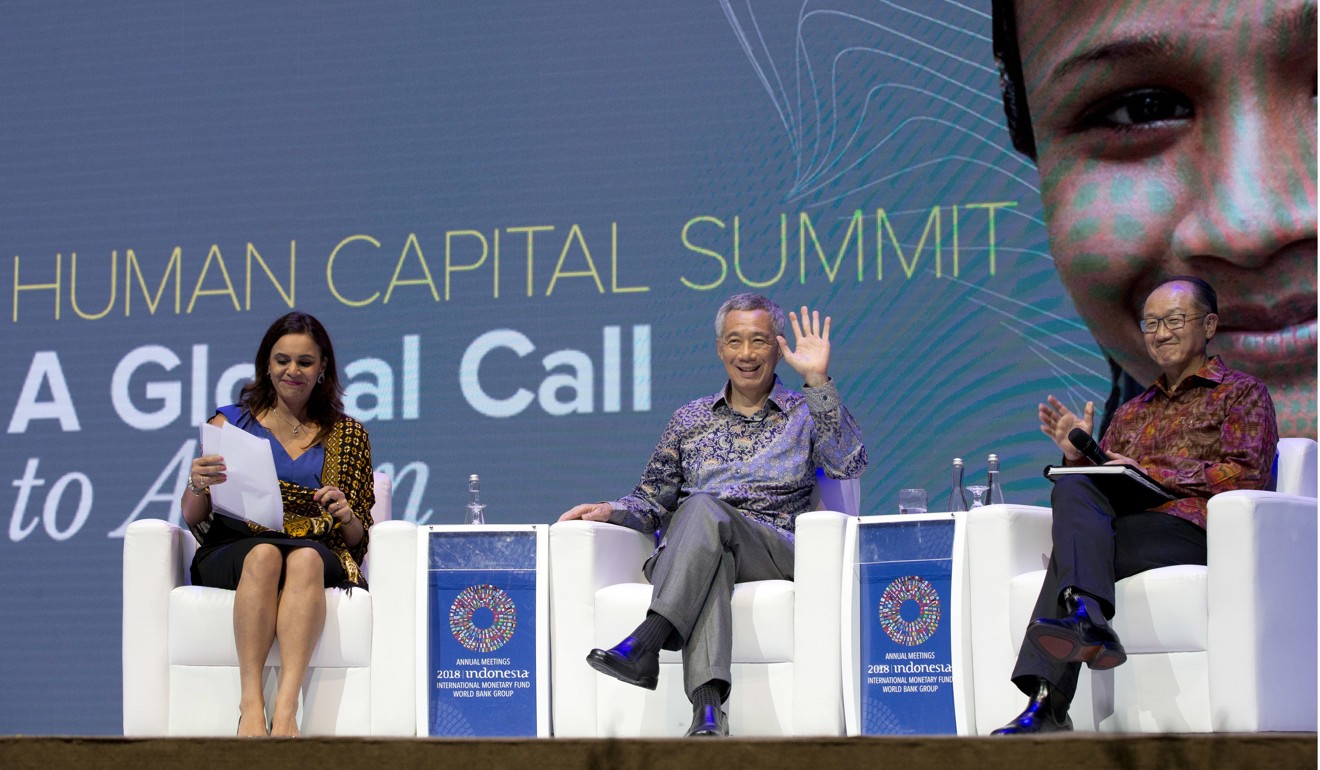
While the Fed’s policy intentions for this year and next have been well flagged, there is still a risk it would have to accelerate tightening, if the US economy shows signs of overheating, he said.
He also noted that oil prices are already higher than the US$70-75 per barrel price the IMF assumed in its latest economic forecast.
It is now expecting Asia-Pacific to grow by 5.6 per cent this year (unchanged from the April forecast), slowing to 5.4 per cent in 2019, a downward revision of 0.2 percentage point from April.
“Part of the downgrade is attributable to financial market stress and resultant policy tightening in some economies, but recent tariff actions have been another key driver,” it said in a latest report.
To offset the headwinds, Rhee said, governments in the region should do three things: maintain a good fiscal balance, maintain current accounts that have only a small deficit or are in surplus, and “do not hesitate” to raise interest rates, when necessary.
Given strong economic fundamentals in most Asian countries, “Asian policymakers should be confident but not complacent,” Rhee urged. Policymakers should “save their [policy] ammunition for when it is truly needed.”


